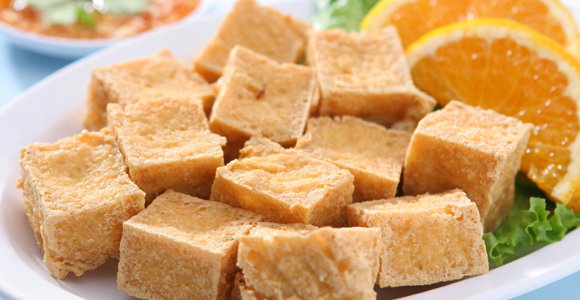Meat may seem synonymous with protein, but the truth is that fruits, vegetables, grains and legumes all have protein, too. In fact, most foods--even lettuce and celery--contain at least some of this muscle-building nutrient.
So why go veggie? For one, you'll spare yourself cholesterol-raising saturated fat while getting plenty of fiber and immune-boosting antioxidants. Meat production is also taxing on the environment, requiring far more water, energy and other resources than plant foods. Whether you're giving Meatless Monday a shot or have sworn off flesh for good, these top protein sources will keep you nourished and satisfied without guilt. For optimal health, aim for 46 grams of protein per day if you're a woman, or 56 grams if you're a man.
1. Quinoa
Unlike most grains, quinoa is a complete protein, meaning it contains all essential amino acids. And with an impressive eight grams per cooked cup, this hearty treat packs in more protein than an egg. Quinoa also provides plenty of iron and magnesium, and tastes great in a cold salad or as a hot accompaniment to grilled mushrooms and zucchini. You can also use quinoa as a substitute for rice in most dishes.
2. Lentils
A cup of lentils provides a whopping 18 grams of protein, which is more than you'll find in a chicken drumstick or a serving of canned tuna. Lentils are also especially high in fiber to aid in digestion and help you feel full, and contain loads of potassium for a healthy heart. However, lentils are not a complete protein source--pair them with rice or other grains to meet your daily amino acid needs.
3. Walnuts
While you can't make an entrée out of walnuts (they're too rich in fat and calories), a ¼-cup serving of this buttery snack provides more than four grams of protein. Plus, walnuts are a good source of omega-3 fatty acids, which WebMD reports may help reduce your risk of heart disease while combating other serious health concerns such as arthritis, dementia and even depression. Sprinkle walnuts on salads, look for walnut butter to spread onto sandwiches or simply pop a handful between meals for lasting energy.
4. Tempeh
Made from soybeans, tempeh is a source of complete protein. Unlike tofu and other soy-meats, however, tempeh goes through a fermentation process that neutralizes a controversial substance called phytic acid. Phytic acid may interfere with the absorption of nutrients like zinc, copper and calcium, which is why some health experts recommend limiting intake of unfermented soy products. Try grilling marinated tempeh and serving it with brown rice and steamed vegetables, or make a tempeh Reuben sandwich on whole-rye bread with a heap of sauerkraut. A 100-gram serving of tempeh provides more than 18 grams of protein.
5. Seitan
Seitan is almost pure protein, packing in about 21 grams of the nutrient per ounce. It also provides iron and is very low in fat. Seitan is made from wheat gluten, so it's not safe for those with gluten allergies. It's also not a complete protein, so be sure to eat other protein sources throughout the day for balance. This versatile "wheat meat" is often packaged as meatless bacon and chicken, and has a chewy, savory flavor.
Nina Kate is a certified fitness nutrition specialist through the National Academy of Sports Medicine (NASM). She also studied journalism at the University of California, Los Angeles (UCLA), and has contributed to numerous major publications as a freelance writer. Nina thrives on sharing nutrition and fitness knowledge to help readers lead healthy, active lives. Visit her wellness blog at BodyFlourish.com.



